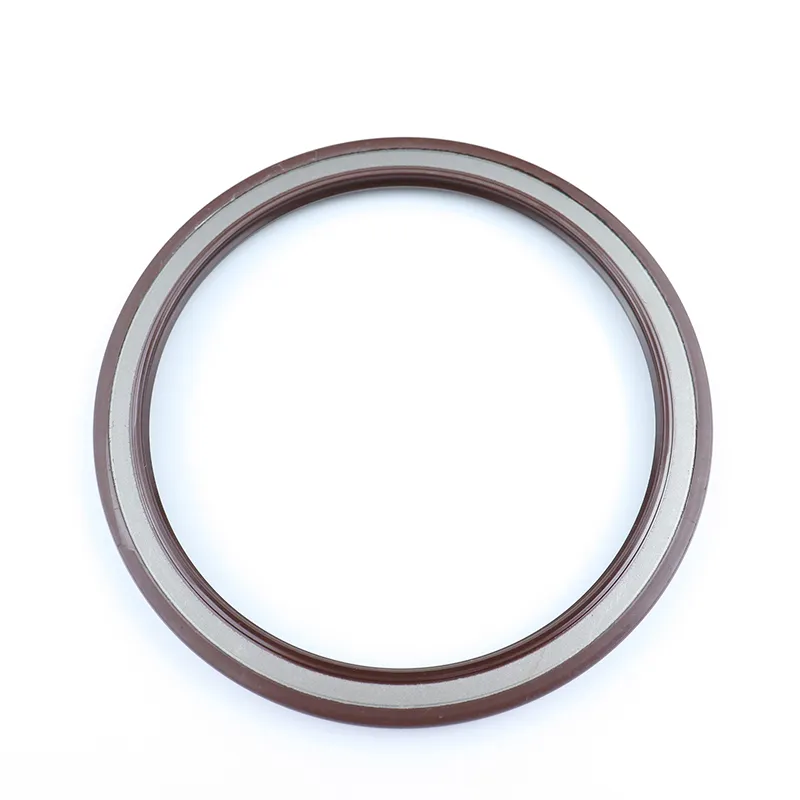Nov . 08, 2024 15:46 Back to list
axle hub seal
Understanding Axle Hub Seals Importance and Maintenance
Axle hub seals are crucial components in many vehicles, ensuring optimal performance and longevity of the drivetrain system. They serve a pivotal role in preventing contaminants such as dirt, water, and debris from entering the wheel hub and axle assembly. This article will explore the purpose, types, maintenance, and common issues associated with axle hub seals.
Purpose of Axle Hub Seals
At the core of their functionality, axle hub seals are designed to keep lubricants in and contaminants out. In most vehicles, the axle assembly contains various lubricants that are essential for smooth operation. These lubricants reduce friction between moving parts, thus preventing premature wear and tear. If the seals fail, they can allow contaminants to infiltrate the assembly, leading to corrosion, increased friction, and eventual failure of critical components.
Axle hub seals also help maintain optimal pressure within the axle housing. This pressure balance is important because it stabilizes the lubricants and prevents foaming, which can diminish their effectiveness. Additionally, by keeping contaminants out, axle hub seals contribute to the overall performance and efficiency of the vehicle's braking system, as the brakes operate better when free from dirt and debris.
Types of Axle Hub Seals
There are several types of axle hub seals, tailored for different vehicle applications
. The most common types include1. Rotary Seals These are the most prevalent type of seals used in axle applications. They are designed to keep lubricants inside while preventing contaminants from entering. Rotary seals typically consist of a rubber or elastomeric body that provides a tight fit against the rotating shaft.
2. Lip Seals Lip seals have a protruding lip that creates a barrier against dirt and moisture. They provide an effective seal against ingress, making them ideal for off-road vehicles or applications where exposure to harsh conditions is likely.
3. Composite Seals These seals combine materials such as metal, rubber, and polymer for enhanced durability and performance. They are often used in heavy-duty applications where traditional seals may fail under stress.
4. Magnetic Seals These innovative seals utilize magnetic technology to create a hermetic seal. They are increasingly being utilized in specialized applications requiring heightened protection against contaminants.
Maintenance of Axle Hub Seals
Maintaining axle hub seals is vital to ensure their longevity and effectiveness. Regular inspections should be carried out to check for signs of wear or damage. Key maintenance tips include
axle hub seal

- Visual Inspections Regularly check for leaks around the wheel hub and axle assembly. Any signs of grease or oil seeping out could indicate a failing seal.
- Check for Contaminants Examine the axle area for dirt, mud, or water, which can suggest that the seal is compromised. If contaminants are present, it is essential to address the problem immediately.
- Regular Lubrication Ensure that the axle assembly is adequately lubricated according to the manufacturer's specifications. Lack of lubrication can increase wear on the seals and nearby components.
- Professional Assessment If any irregularities are noted, it is advisable to consult a professional technician for a thorough inspection and necessary repairs.
Common Issues with Axle Hub Seals
Despite their robustness, axle hub seals can develop issues over time. Common problems include
- Wear and Tear Exposure to harsh environmental conditions and friction can wear out seals, leading to leaks.
- Incorrect Installation If seals are not installed correctly, they may fail prematurely. Ensuring proper installation techniques is vital.
- Material Degeneration Rubber and elastomeric materials can degrade over time due to exposure to heat, chemicals, and UV light, compromising the seal's effectiveness.
- Damage during Maintenance Care must be taken during routine maintenance tasks, as seals can be easily damaged when components are being removed or replaced.
Conclusion
In conclusion, axle hub seals play an indispensable role in a vehicle's drivetrain system. Their ability to keep lubricants in and contaminants out directly affects the vehicle's performance, safety, and longevity. Proper understanding and maintenance of axle hub seals can prevent costly repairs and ensure a smooth driving experience. By paying attention to these critical components, vehicle owners can significantly enhance the overall durability and functionality of their vehicles.
-
TCN Oil Seal Metal Ring Reinforcement for Heavy Machinery
NewsJul.25,2025
-
Rotary Lip Seal Spring-Loaded Design for High-Speed Applications
NewsJul.25,2025
-
Hydraulic Cylinder Seals Polyurethane Material for High-Impact Jobs
NewsJul.25,2025
-
High Pressure Oil Seal Polyurethane Coating Wear Resistance
NewsJul.25,2025
-
Dust Proof Seal Double Lip Design for Construction Equipment
NewsJul.25,2025
-
Hub Seal Polyurethane Wear Resistance in Agricultural Vehicles
NewsJul.25,2025
-
The Trans-formative Journey of Wheel Hub Oil Seals
NewsJun.06,2025
Products categories
















